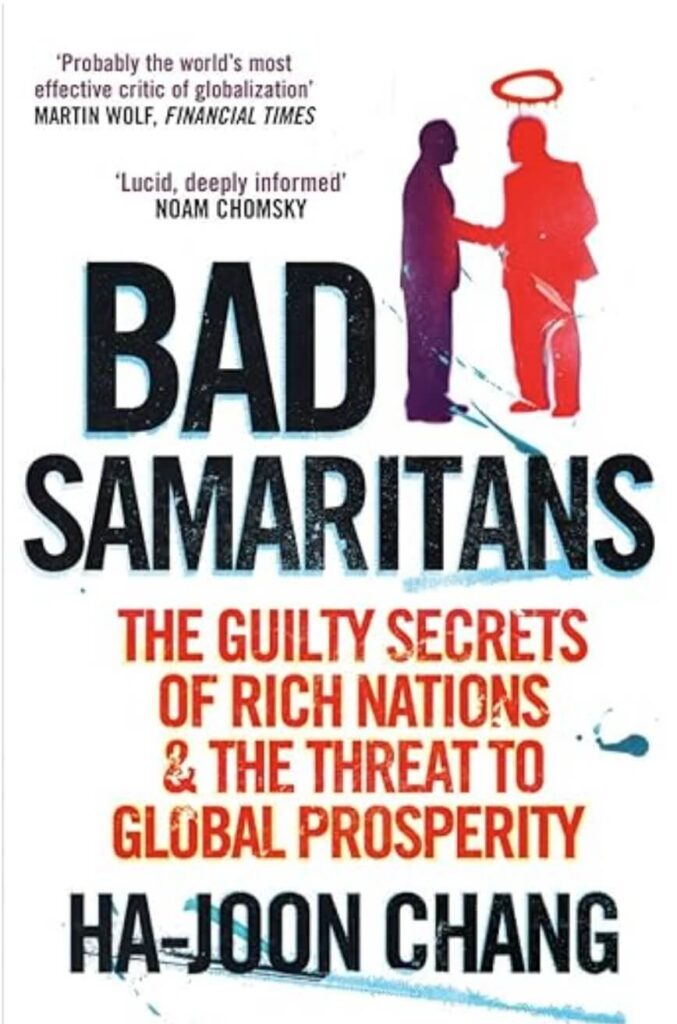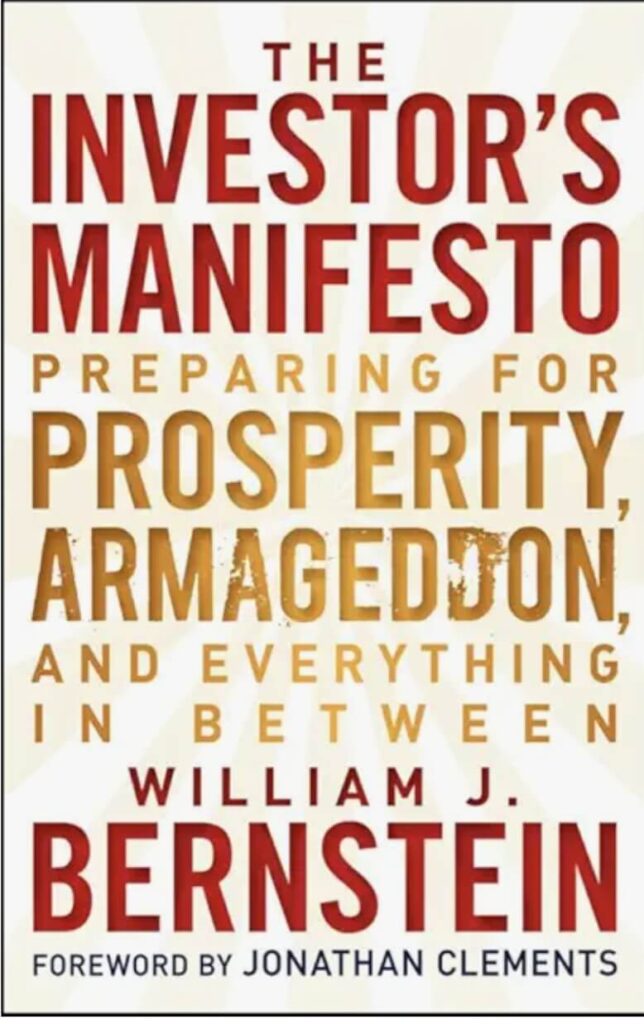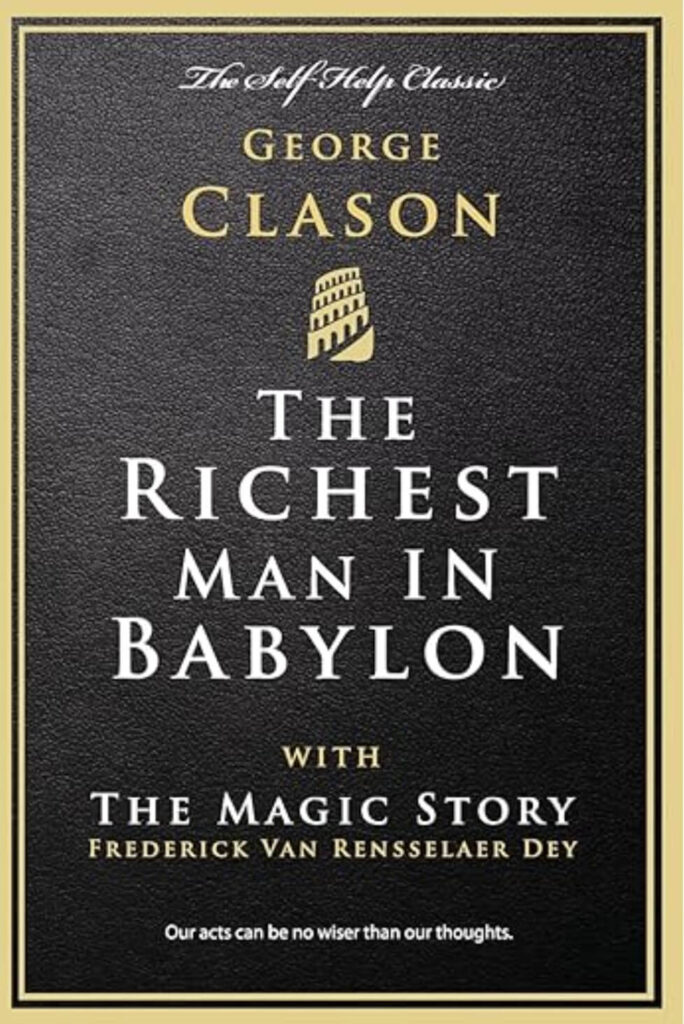What if the global champions of free trade and open markets aren’t actually helping developing countries — but hurting them? That’s the provocative thesis of Bad Samaritans, Ha-Joon Chang’s eye-opening and unapologetically critical book that dismantles the myths of globalization one argument at a time.
Written for a broader audience than his earlier work, Bad Samaritans takes aim at the economic advice and policies promoted by rich nations and international institutions — advice that, Chang argues, often stalls development rather than accelerates it. With wit, historical insight, and sharp economic analysis, he offers a bold counter-narrative to mainstream development theory.
💡 Why This Book Still Hits Home
Bad Samaritans is not just a critique — it’s a challenge to the status quo of international development. First published in 2007, the book arrived at a time when neoliberalism was still considered the dominant model, and free trade was widely seen as a moral and economic imperative. Chang asks us to look beneath the surface: Are the “good” intentions of global institutions truly good? Or are they cloaked forms of economic control?
His answer is clear: many of today’s “helpers” — the so-called good Samaritans — are in fact bad Samaritans, pushing poor countries into adopting policies that they themselves avoided during their own paths to prosperity.
🧠 The Core Idea
Chang argues that the current orthodoxy in economic development — open markets, deregulation, privatization, and minimal state intervention — is not only flawed but historically dishonest. Developed nations, he shows, industrialized through heavy government involvement, protectionism, and subsidies. They only turned to free-market policies after becoming rich — and now push those same policies on poorer nations through aid, trade deals, and institutions like the IMF and WTO.
In other words: “Do as we say, not as we did.”
📚 Structure of the Book
Bad Samaritans is structured as a series of accessible chapters, each focused on debunking a particular economic myth. These include:
Myth 1: Free Trade Helps All Countries Equally
Chang argues that “free trade” tends to benefit the already strong. Developing countries need time and protection to build up industries, just as rich countries did in the past. Throwing them into open competition too soon can be disastrous.
Myth 2: Globalization is Inevitable and Irresistible
Globalization isn’t a natural force — it’s a policy choice. Chang points out that countries can and do regulate the flow of goods, capital, and people. What matters is not whether globalization happens, but on whose terms.
Myth 3: Government is the Problem
The idea that markets work best when governments get out of the way is contradicted by the very history of development in the West. From infrastructure to innovation, governments have always played a crucial role.
Myth 4: Corruption is the Biggest Barrier to Growth
While corruption is a problem, Chang argues that it is often used as a distraction from bigger structural issues. Moreover, many successful economies — including South Korea and Taiwan — grew rapidly despite high corruption levels early on.
Each chapter is filled with real-world examples, from post-colonial Africa to modern-day South Korea, and written in a voice that’s both pointed and readable.
✅ Why You Should Read This Book
It’s Economic Theory with a Human Face
Unlike abstract economic textbooks, Bad Samaritans brings economics down to earth. Chang shows how policy decisions made in boardrooms and ministries affect real lives — especially in developing nations.
It Tells the Other Side of the Globalization Story
Most economic advice to developing countries comes with strings attached. Chang pulls back the curtain on how power and self-interest shape these recommendations — and how damaging they can be when blindly followed.
It’s Funny, Accessible, and Smart
Chang writes with humor and personality. He uses everything from Elvis Presley’s visa struggles to Nokia’s unlikely rise in Finland to drive home his points. The result is a book that’s as engaging as it is enlightening.
🎯 Real-World Relevance
In the aftermath of global shocks like the 2008 financial crisis and the COVID-19 pandemic, many countries began rethinking globalization. The rise of economic nationalism, questions around supply chain dependency, and critiques of IMF-imposed austerity have made Bad Samaritans more relevant than ever.
⦁ Should poor countries open up their economies unconditionally?
⦁ Are trade liberalization and foreign investment the best development tools?
⦁ Can “infant industries” still be protected in a globalized world?
Chang answers these with a resounding no, or at least: not always.
⚠️ Where the Book May Be Challenging
It Goes Against the Grain
If you’ve studied mainstream economics, this book might feel like a direct confrontation. Chang challenges foundational assumptions about efficiency, competition, and the government’s role.
It’s Politically Provocative
The book is unapologetically anti-neoliberal, which can alienate readers who see free markets as inherently virtuous. But that’s part of its strength — it invites debate and critical reflection.
💬 What Readers and Critics Say
“A voice of reason in a world of economic double standards” — Critics from the Global South have praised the book for articulating frustrations that many policymakers feel but cannot publicly voice.
“A dangerous book — in the best sense” — Reviewers appreciate that Chang doesn’t just poke holes in mainstream theory; he offers an alternative path rooted in historical precedent.
“Essential for students, diplomats, and the curious” — Many consider Bad Samaritans a vital resource for understanding the hidden biases of global development policy.
📈 Final Verdict: ★★★★★ (5/5)
Bad Samaritans is a bold, brilliant, and necessary book that doesn’t just critique — it reframes the entire conversation around development and globalization. It challenges readers to ask hard questions about fairness, history, and whose interests economic policy really serves.
For economists, policymakers, students, or any citizen of the world concerned about inequality and justice, this is essential reading. It won’t give you easy answers, but it will give you a radically clearer view of the economic forces shaping our world.




